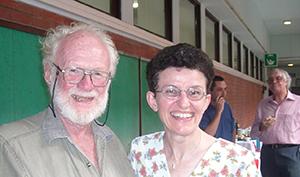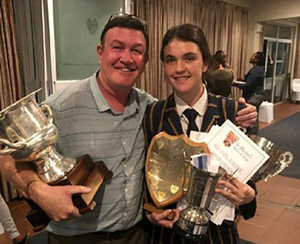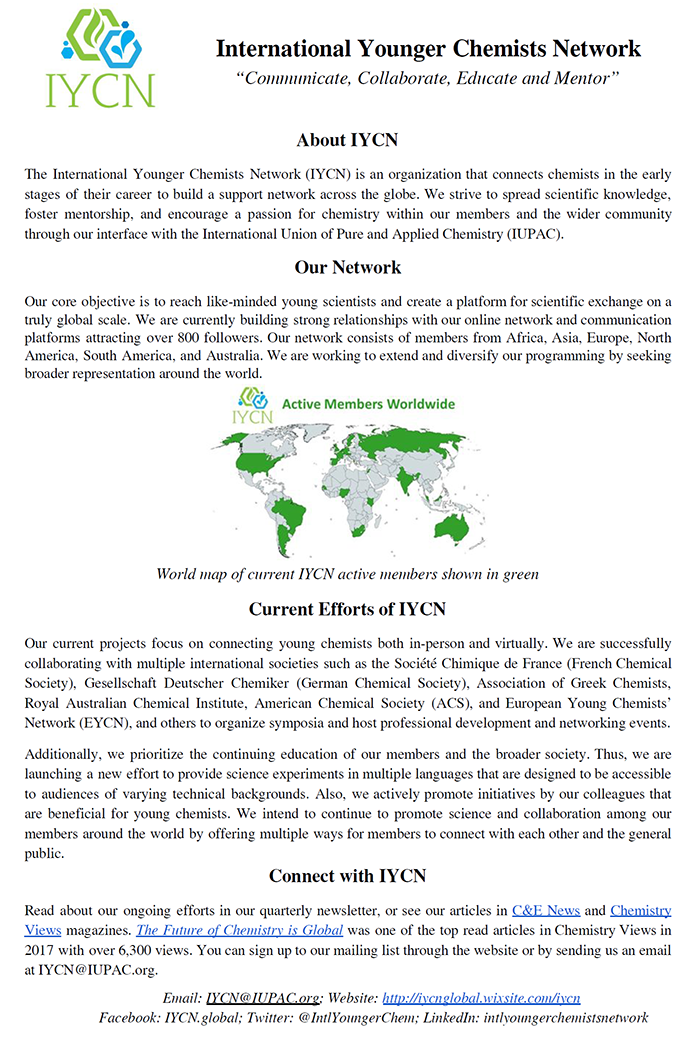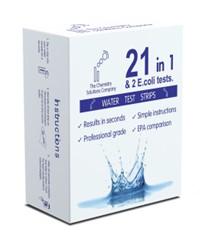
- About Us
- Events
- Membership
- Fellow Membership
- Reminiscences - Members
- Home
- SACNASP
- Awards
- News
- SA Journal of Chemistry
- Vacancies
- Notices & Announcements
- Chemistry Departments
- Interesting Websites
- Salary Survey
Advertise Here

SACI News December 2022
As another year draws to a close we would like to thank all our members for their continued support. The year 2022 has not been without challenges but we have pulled through and shown our resilience. We hope you and your family and friends are safe and healthy.
On behalf of SACI we wish all our members all the best for the festive season ahead and hope you and your loved ones enjoy a well-deserved break! We also wish everyone everything of the very best for 2023 – may it be an excellent year!! The year opens with the 44th National Convention of the Institute in Stellenbosch, an event we are all very much looking forward to, where we can once again meet and renew friendships and collaborations. We hope to see many of you there!
Keep safe and stay healthy.
Bice Martincigh
Content
-
SACI office address and times
-
Advertising in the SACI newsletter
-
SACI ties, scarves and t-shirts for sale
-
Pay your SACI membership fees with SnapScan
-
From the President’s Desk
-
Congratulations to our 2022 SACI award winners!
-
Obituary: Rehana Malgus-Enus (1983-2022)
-
Down Memory Lane
-
Of interest: To young African scientists
-
2023 IUPAC Global Women’s Breakfast: "breaking barriers in science" (14 Feb 2023)
-
Chemists for Diversity and Inclusivity (CDI)
-
Sections and Divisions News
-
Commonwealth Chemistry
-
RSC News
-
SACNASP
-
NSTF News
-
AYCN
-
IUPAC News
-
International Younger Chemists Network
-
Report on Young Ambassadors for Chemistry programme held in Cape Town on 23 July 2023
-
FASC News
-
Global Young Academy of Science
-
CAIA Newsletter
-
Clean Water for All
-
Polytop Vial Storage Trays for Sale
-
South African Journal of Chemistry
-
African Journals of Chemistry
-
SACI and SACI-related conference events
-
Other Conferences
-
Vacancies
SACI office address and times
The SACI office, run by Laila Smith, is located in the Chemistry Department, Wits University, 1st Floor Humphrey Raikes Building. The telephone number is 011 717 6705 and e-mail address is: saci.chem@wits.ac.za. The cell phone number is 061 282 3477.
Office hours are from 8.30 am till 1.00 pm. Laila can be contacted at any time during her office hours.
Advertising in the SACI newsletter
The newsletter provides a means of getting messages to our membership. Currently the SACI membership stands at over 1000. This newsletter thus provides a means of advertising employment opportunities, conferences and workshops, and even for companies/Universities to promote themselves. We encourage members to use the Newsletter for advertising purposes. All SACI related conferences and events are advertised for free; if not a SACI related event there could be a small charge. For advertising costs contact Laila at the SACI office.
SACI Ties, Scarfs and T-shirts
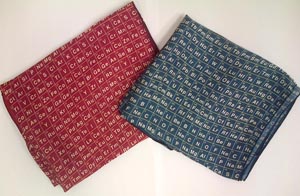
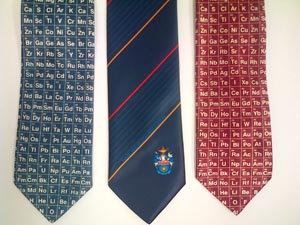
Periodic table ties and ladies scarfs R130 each.

Periodic table T Shirt Short sleeve R180, Long sleeve R200
Please contact head office to place orders.
There is also a courier charge of R150 per order for delivery.
Pay your SACI membership fees with SnapScan
For those wishing to pay via credit card please let Mrs Laila Smith know so she can generate an online payment and email you a link.

From the President’s Desk
Dear SACI member – greetings! - where did the year go?
2022 will be remembered as a rather strange year – it started under the Omicron Covid-19 variant lockdown and has ended more-or-less like a “normal” year. However, the social and economic impact of the pandemic is still very evident on our country.
It’s our hope that over the Festive season all SACI members will be able to have some well-deserved rest and to enjoy quality time with their loved ones.
On behalf of SACI’s EXCO, I also wish you all a prosperous New Year and much strength and wisdom for 2023 in terms of adding value to our country as chemists!
Note the office will be closed from 20 December 2022 to 4 January 2023
Kind regards
Willem van Otterlo
Congratulations to our 2022 SACI award winners!
We wish to congratulate all the winners of the 2022 SACI Awards. This is a wonderful achievement!
The 2022 winners are:
THE GOLD MEDAL: Prof Fernando Albericio, University of KwaZulu-Natal
THE MERCK MEDAL: Bice S. Martincigh, as the senior author for the publication: S. Afr. J. Chem., 2018, 71, 68-78, entitled: “The effect of synthesis method on the structure, and magnetic and photocatalytic properties of hematite (α-Fe2O3) nanoparticles” and authored by Ibrahim Abdulkadir, Hafiz M.I. Abdallah, Sreekantha B. Jonnalagadda and Bice S. Martincigh*.
THE CHEMICAL EDUCATION MEDAL: Dr Christine E. Mundy, University of Pretoria
THE RAIKES MEDAL: Prof Lawrence E. Madikizela, University of South Africa
THE SASOL POST-GRADUATE AWARDS:
Dr Lethiwe D. Mthembu - Durban University of Technology
Dr Nonjabulo P.D. Ngidi - University of KwaZulu-Natal
Dr Shaeen Chetty – University of Witwatersrand
THE JAMES MOIR MEDALS:
Mr C.C. Tsoke |
University of Limpopo |
Ms P. van der Merwe |
University of Pretoria |
Mr M.S. Manarini |
University of Venda |
Ms A Jordan |
North-West University |
Mr J.C. Spath |
University of Cape Town |
Mr J.P. Cuthbertson |
Nelson Mandela University |
Ms S. GhuMran |
Durban University of Technology |
Mr E. De Wet |
Stellenbosch University |
Ms L. Naidoo |
University of the Witwatersrand |
Ms K Burgess |
Rhodes University |
Obituary: Rehana Malgas-Enus (1983-2022)
It was with great sadness that on Tuesday, 20 September 2022, we learned of the sudden passing of Rehana Malgas-Enus at the mere age of 39 years. Rehana passed away while she was on sabbatical in Germany, visiting the Technical University of Dresden. Earlier in the year she was awarded the prestigious Eleonore Trefftz Fellowship, which allowed her to spend some time in the Department of Inorganic Molecular Chemistry at TU Dresden. She was visiting the lab of Prof. Jan Weigand and together the two of them were looking forward to further consolidating the collaboration which they had initiated earlier in the year. The news of her passing was like a bolt out of the blue and for many of us it has been extremely tough to come to grips with it. What a tragedy that someone with so much potential had her life snatched away so prematurely.
Rehana was born in Mitchells Plain on the Cape Flats. She and her sister were raised by a single mother since her father died when Rehana was still very young. Growing up in Beacon Valley, one of the most impoverished areas of Mitchells Plain, she was from an early age, surrounded by the typical social hardships that prevail in such working-class townships across the Cape Flats. The scourge of drug-abuse, gangsterism and other social ills was a daily reality but with guidance of a determined and caring mother, she focused on her studies as she realized that this was a way of escaping from this dire situation. She completed her high school education at Zeekoevlei Secondary School, a public school located in the nearby suburb of Grassy Park.
After successfully completing Grade 12, Rehana embarked on a B.Sc. degree at the University of the Western Cape in 2002. The following year was the first time I encountered her, as she enrolled for the second-year Inorganic Chemistry course I was lecturing at the time. Almost from day one, it was clear to me that we were dealing with someone remarkable. As everyone who knew her, Rehana was an extremely extroverted, highly self-confident person and it was inevitable that soon she would become known to almost everyone in our department, and this included both staff and students.
After completing her undergraduate and Hons. degree, she In 2005, enrolled for a M.Sc. degree at UWC, under my supervision. Shortly after Rehana became a member of our group, we joined several other research groups at other South African Universities to become part of the virtual Centre of Excellence in Catalysis, known as c*change. As a result of being a c*change student and attending CATSA conferences, she became well-known not only amongst people in catalysis but also to the broader chemistry community. Later as a fully-fledge academic, she was involved in the activities of both CATSA and SACI. At the time of her passing, she was a member of the CATSA committee as well as the SACI-Western Cape executive. Earlier this year she was elected as treasurer of SACI-Western Cape. She also held a similar position on the council of the Royal Society of South Africa. Given her passion and the dedication with which she approached any task, her contributions to these organizations will be sorely missed.
In 2008, Rehana was part of a small group of students from UWC who joined me when I took up a position at Stellenbosch University. Being the most senior student in the group, she was central in helping me setup my new lab at SU. Her legendary organizing skills made the transition from UWC to SU so much easier. She was my first Ph.D. graduate at Stellenbosch University. She completed her Ph.D. in 2011, after which she took up a post-doc position at the University of Johannesburg in the group of Reinout Meijboom.
She returned to Stellenbosch University in 2013 to take up a full-time lecturing position in the Department of Chemistry and Polymer Science. It was not long after being appointed at SU, that she really came into her own. Although her long-time dream of becoming an academic had been fulfilled, she did not leave it at that. She immediately set about becoming a good all-round academic. She tackled all tasks given to her with great enthusiasm, dedication, and lots of passion. She would never squirm away from any task given to her, no matter how challenging it might appear. Rehana had a passion for teaching and loved interacting with students, especially undergraduate students. She became a valuable member of the first-year teaching team, especially, when she volunteered to teach a first-year module in Afrikaans even though she had never lectured in Afrikaans before. She tackled this with great passion and her dedication was recognized, when recently she was nominated by the best first year student as the lecturer who had the greatest impact on her.
Soon after her appointment in 2013, she embarked on an independent research career. This initially was difficult, as access to required resources were limited but because of her resilient nature, she slowly found her feet and once she started to secure her own research funding, she was able to gradually establish a small research group in the area of nanotechnology. This has steadily grown over recent years and at the time of her passing, her group had reached a real critical mass in terms of group size and experience. In the last couple of years, she managed to graduate several post graduate students at both the Masters and Ph.D. level. This has led to some substantial improvement in her research outputs. Just before her passing she was working quite hard in finalizing several manuscripts for publication, with a couple of these being under review at the time of her passing.
In addition to performing her main academic duties in a highly efficient manner, Rehana was also extremely passionate about community outreach activities. In conjunction with the late Klaus Koch, she co-founded SUNCOI, which is the flagship of the community interaction activities of the Department of Chemistry and Polymer Science at Stellenbosch University. This was probably the area in which she excelled the most. She was undoubtedly the main driving force behind this, overseeing the rapid growth of the programme in a very-short period of time. Rehana worked tirelessly to build strong relationships with important role players in the basic education sector. This included the Western Cape Education Department, as well as donors such “Die Stigting vir Bemagting deur Afrikaans”. The success of SUNCOI, has led to the establishment of similar initiatives at the University of Pretoria and Nelson Mandela University with Rehana assisting colleagues at these institutions to launch their own versions of SUNCOI. Just before her passing, she spent the previous weekend at NMU coordinating a workshop for grade 12 learners. By all accounts, this was as usual an overwhelming success. Since her passing, several messages of condolences have poured in from teachers, students and administrators who had participated in SUNCOI workshops over the years, all expressing their disbelieve at her untimely death.
Rehana, in her short life, impacted on the lives of many people who came into contact with her. This is especially true of the many students who passed through her hands. She felt particularly strongly about individuals from disadvantaged backgrounds and went out of her way to assist such individuals often at great personal sacrifice. She was a true champion for the marginalized, always standing up for everyone, irrespective of their background. She always pushed for everyone to be given a fair chance to succeed. Although she was often portrayed as being a tough person, she essentially was a kind-hearted and deeply caring individual. She will surely be missed, and her absence will be felt on several fronts.
May her soul rest in peace.
Selwyn Mapolie, Department of Chemistry and Polymer Science, Stellenbosch University
Down Memory Lane
To add to the history of SACI it was decided to get some of the older SACI members to relate about their experience of SACI in years gone by me. To do this a letter was sent out to the SACI membership form the then President, Prof Vincent Nyamori, in late 2017. The letter requested that those members with 40 + years of SACI membership write a few paragraphs on their remembrance of SACI in times past.
For a variety of reasons, these anecdotal comments are only now being collated in mid-2020. These remembrances of times past provide a small window on the times that the members recollect. Below are listed (virtually unedited) the comments from these members.
If there are any others who would still like to add to this article please do so. Send your information to me.
Prof Neil Coville
July 2020
The letter of invite
Dear SACI Member
You have been a SACI member for over 40 years. We are trying to record some early history of SACI. Could you write a paragraph for us (10 lines; or longer) on (i) an early memory relating to SACI and (ii) what you doing now.
Thanks
Prof Vincent Nyamori
Response from Mr E.J.D. Kable
South African Chemical Institute – remnants from the past
My earliest recollection of SACI dates back to the late fifties at which time I was in high school. I had an uncle, R.A.Wood (Bob), a chemical engineer who was actively involved in the Southern Transvaal branch. At that time the chemical engineers did not have their own professional body. He and H.R. (Roy) Corbett, science teacher at KES, were largely instrumental in sparking my interest in chemistry. Following the death of my father I spent a lot of time with the Wood family. On the odd occasion I used to accompany him on his visits to clients and colleagues. On one particular occasion he had an appointment with Dr. Ken Mathieson, who was also involved in SACI, and at that time was attached to the Gold Fields laboratories in Booysens. Coincidently, I ended up at the same locality in the late eighties.
The branch was very active and held regular functions. Monthly dinners were par for the course. Bob always kept me abreast of the activities and I got to know the likes of Dr. Arnold Mendelowitz and Dr. Henry Stein of AECI, Prof. Issy Israelstam and Sam Goodman. I got to know Sam better in later years when we served on the same committee together with Dr. Mike Booth, Roy Corbett and Nigel Coney (chemical engineer).
In the early sixties my uncle served a term as chairman of the branch. It was customary for the occupant of the position to present a paper at the end his tenure. This was always a gala event. I assisted him in compiling information for his talk which centred on “The two cultures”, art and science, the two chief protagonists being C.P. Snow and F.A. Lindemann.
I recall short courses put on by SACI of which I attended some. These were generally held late afternoon/early evening with a break for a finger supper, usually a grand affair, and held over several days. One such school was devoted to sampling and several knowledgeable individuals contributed. I have a vivid picture of one such contributor from the Chamber of Mines Research Organization, viz. a portly gentleman by the name of Rabson, not Bill Rapson.
Unlike SACI’s current base in the department of Chemistry at Wits., all professional and technical societies had a common home, viz. Kelvin House and fell under the umbrella of Associated and Technical Societies (AS&TS). It was conveniently situated close to the mining houses and the Chamber of Mines. Apart from providing secretarial services and a home for the different societies it also housed meeting rooms, lecture rooms, a restaurant and a bar. It was central to all activities. Sadly in the nineties with the dissipation of mining activities to other parts of Gauteng, Kelvin House lost its relevance.
On entering studies in chemistry at Wits. students were cajoled into joining SACI as student members by Prof. Issy Israelstam who was responsible for the organic chemistry course. He was most persistent. If my memory serves me correctly I joined the society in 1963.
I recall the names of some of my colleagues of 1965, they included Neil Coville, Arthur Garner, Dave Rosettenstein, Ray Bischoff, Ginger Reynders, Geoff Yeo, Rob McCrindle, Terry Murphy, Warwick Tarboton, Marie McEvilly, Lex van Vught, Brenda Jones, Ann Fulton.
The nineties saw the incorporation of the South African Institute of Assayers and Analysts into SACI. Pieter Marais and Rob McCrindle were involved with the negotiations with the assayers.
Of interest: To young African scientists
An interesting link for African young scientists:
https://content.govdelivery.com/accounts/USNIAID/bulletins/3287dbd?fbclid=IwAR2JNz-T60Juz6g6wOID3W-NmxOtMV8BD5kLwtzF8kp4dz69LpCRNV6iYlc
2023 IUPAC Global Women’s Breakfast: "breaking barriers in science" (14 Feb 2023)
To all SACI-44 Delegates,
The national IUPAC Global Women's Breakfast (SA Edition) is coming to SACI-44! SACI CDI (SACI: Chemists for Diversity and Inclusivity) will be chairing an engaging session with guest speakers and panel discussions.
The overall purpose of IUPAC's Global Women's Breakfasts is to establish an on-going network where women in the chemical and related sciences can connect with each other in a meaningful way to support their professional development.
Event: IUPAC Global Women's Breakfast (SA Edition)
Date: 12th Jan 2023
Time: from 14h10-16h10
Venue: SACI-44 Convention (https://www.saci.co.za/SACI2023/)
IUPAC Theme: "Breaking Barriers in Science"
Info Link: https://iupac.org/gwb/

This is a national event with contributions from SACI Central, SACI North, SACI KwaZulu-Natal, SACI Eastern Cape, SACI Western Cape. The event is open to SACI-44 delegates only.
Warm regards,
SACI CDI
Chemists for Diversity and Inclusivity (CDI)
SACI introduces a new forum: the CDI
The South African Chemical Institute has launched a new initiative: Chemists for Diversity and Inclusivity (CDI). The aim of this forum is to promote discussion around diversity and inclusivity within the Chemical Sciences. SACI is committed to nurturing the values of diversity, inclusivity and equity in the chemical sciences and opposes discriminatory acts or threats of any kind. Consequently, SACI will continue to play a leading role in assuring the professional competence and integrity of chemists and fostering international collaboration whilst upholding inclusivity and diversity. From this standpoint, the CDI arose to lead this conversation from the South African context.
The current CDI team include Dr Sadhna Mathura (Chair), from Wits University; Prof. Bice Martincigh (Vice Chair), from UKZN; Prof. Nikoletta Báthori (Secretary/Treasurer) from CPUT and Ms Bianca Davids (Student Representative) from Wits University and assisted by Ms Laila Smith (SACI Administrator). We hope to facilitate many interesting conversations in the future by way of lectures, panel discussions, workshops and so on. To that end, do feel free to email SACI with any suggestions and comments of what types of activities you would like to see as part of the CDI’s contributions.
Sections and Divisions News
-
SACI Council and Annual General Meetings
The Council and Annual General Meetings of SACI were held on Thursday, 25 August as online events on Microsoft Teams for the third time. At the AGM the new Fellows of the Institute were presented. These are:
Name of Member |
|
Section |
Professor Alan Hutton |
|
Western Cape |
Professor Peter Mallon |
|
Western Cape |
Professor Ndze Denis Jumbam |
|
Eastern Cape |
We also congratulate them on this wonderful achievement.
This year our only Life Member was Professor Bette Davidowitz, who joined SACI in 1977 (45 years of membership).
The SACI Council for the period 2021-2023 is as follows:
POSITION |
NAME |
Administrator |
Mrs Laila Smith |
President |
Prof Willem van Otterlo |
Immediate Past President |
Prof Peter Mallon |
Vice President |
Prof Zenixole Tshentu |
Executive Secretary |
Prof Nikoletta Bathori |
Executive Treasurer |
Mrs Suzanne Finney |
Co-opted Member |
Prof Vincent Nyamori |
Co-opted Member |
Prof Bice Martincigh |
Co-opted Member |
Prof Comfort Nkambule |
Co-opted Member |
Dr Caren Billing |
SACNASP |
Prof Ernst Breet |
IUPAC |
Prof Peter Mallon |
ACS |
Prof Charles de Koning |
Webmaster |
Mrs Laila Smith |
Publicity |
Prof Bice Martincigh |
Student Representative |
Megan Matthews |
Publications |
Prof P Forbes |
Eastern Cape Section |
Prof Rui Krause |
KwaZulu-Natal Section |
Prof Bernard Owaga |
Central Section |
Dr Mike Smith |
North Section |
Prof Comfort Nkambule |
Western Cape Section |
Prof. Nikoletta B. Báthori |
ChromSA |
Ms Belinda-Leigh Hickman |
SAAMS |
Ms Maré Linsky |
Analytica |
Prof Matthew Nindi |
Molecular Modelling |
Dr Cornelia van Sittert |
ElectrochemSA |
Prof Omotayo Arotiba |
Environmental Chemistry |
Prof Jonathan Okonkwo |
Carman (Physical Chemistry) |
Prof Delia Haynes |
Organic Chemistry |
Dr Clinton Veale |
Inorganic Chemistry |
Prof Tim Egan |
Industrial Chemistry |
Mrs Suzanne Finney |
Chemical Education |
Dr Helen Drummond |
Green Chemistry |
Dr Rosalyn Klein |
ThermSA |
Dr Liezel van der Merwe |
The financial statements of the past year were presented by the Treasurer, Mrs Suzanne Finney, and we are pleased that SACI is still on a sound financial footing despite the lack of conference funding as a result of the pandemic.
The AGM concluded with the address from the editor of the South African Journal of Chemistry, Professor Cornie van Sittert, who delivered a very stimulating talk entitled “For the love of Chemistry”.
-
Industrial Division
The SACI Industrial Division hosted an on-line webinar Wednesday, 19 October, in which presentations were given by SACI Chemists, with a wealth of experience in their chosen fields of work.
In the 1st half of the webinar, Ms Nokulunga Sincuba, a Senior Chemist and Training Instructor at Koeberg Nuclear Power at Eskom Holdings SOC Ltd, shared her experience on “A day in the life of a power plant chemist”
Nokulunga Sincuba (known as ‘Nono’), is a 29-year-old female, raised in Idutywa-Eastern Cape. She studied a National Diploma in Analytical Chemistry at Cape Peninsula University of Technology (CPUT). Nono joined Eskom as an Intern in February 2016, and appointed as a Shift Chemist in 2017. As a dedicated young professional, with 6 years of experience in the nuclear power plant industry (chemistry), she aspires to grow in her career and enhance her skills and knowledge. Nono completed a B-Tech in chemistry, at CPUT, whilst working as a Shift Chemist, which afforded her an opportunity to have a good understanding of industrial chemistry and analytical chemistry techniques. She was promoted to a Senior Chemistry Instructor and is currently enrolled with the academy of people development, studying towards an occupationally directed education, training, and development practitioner certificate to be completed in December 2022.
Nono’s presentation, in summary, covered the definition of a power plant as an industrial facility that generates electricity. Eskom owns several power plants across the country. A discussion on power plant water purification, and the water cycle in a Nuclear power plant, with the chemistry that forms a corner stone of a power plant, was highlighted. Chemistry sampling, monitoring and analysis was presented, as the justification behind the chemistry regime that supports long-term plant operation with a pH that has proven to reduce corrosion and corrosion product transport, hence minimising the activation of corrosion products.
Following, Simon Norton, a Chemist and expert in corrosion and failure investigation, and CEO of Chemical Investigation Services, gave a well-defined presentation on "Chemistry in Corrosion Science - chemistry as you have never seen it before".
Simon Norton has taught over 100 technical courses to engineers and professional staff throughout South Africa on the Lubrication of Industrial Machinery, on Problem Formulation, on Industrial Environmental Management and more recently corrosion engineering. He has lectured Corrosion Engineering courses, given Mini Corrosion seminars to OCCA (Oil & Colour Chemists Assoc.) and won the Corrosion Institute of SA (W. Cape) award for the best technical lecture in 2014. In 2017 and 2019 he presented corrosion of steel courses to a group of engineers from a nuclear power station as well post graduate civil engineers. He has also been invited to lecture a specialised corrosion course to post graduate materials science students at the University of Cape Town. Mr Norton frequently presents corrosion lectures to the Corrosion Institute of SA seminars.
He graduated from the University of Cape Town with a Bachelor of Science degree in Chemistry and is a Member of the South African Chemical Institute, IOM3 (UK) and The Corrosion Institute of Southern Africa. He has gained significant technical and managerial experience during his professional career from 1984 to 2022 including work in a water test laboratory, at Metal Box Research, with Shell SA and as CEO of the Rose Foundation, the Cape Initiative in Materials and Manufacturing and the Farmed Abalone Export Council and now as an expert corrosion and failure investigation consultant to South African industry.
In summary, Simon’s presentation covered corrosion science, which crosses all the boundaries of the various sub disciplines in chemistry. Using a selection of case histories, in which he has been intimately involved, he illustrated the multi-disciplinary nature of a corrosion science related investigation. Many corrosion related investigations involve stainless steels and, here, the nature of unit cell structure of various stainless steels determines the performance of the stainless steel in practice. The inorganic chemical composition of a stainless steel is critical to the ability of the particular stainless steel to resist corrosion. The presence of inorganic chemical species in cooling waters, fluids and natural waters carried in stainless steel pipes can have a significant impact on how long the piping survives in its operational environment. Even more complicating is the onset of microbiologically induced corrosion in stainless steel piping due to the way in which the piping was welded and what products flowed in the pipe.
Of course, the field of corrosion science is closely involved with electrochemistry and physical chemistry and when certain chemical fluids are used in food factories to clean or disinfect stainless steel these products can have a severe impact on the stainless steel integrity.
Analytical chemical methods are frequently used to analyse stainless steels themselves to determine their suitability for the application and for welding, as well as to analyse the fluids used in the pipe and even deposits found in the piping.
A total of 49 SACI members attended the webinar, and were provided with in depth information on careers in different application fields. A huge thank you is extended to Nono and Simon for their commitment to the SACI Industrial Division, and for their time given to the SACI members. The information presented gave SACI student members a bigger picture of what Chemists actually do in industry!
The Industrial Division encourage other Industrial Chemists to participate in future webinars. These webinars assist students in their chosen careers, and give them an opportunity to ask questions to Industrial Chemists. Please contact the Chairman of the Industrial Division mrssuzefinney@gmail.com
NOTE: If you are a SACNASP registered Natural Scientist, and attended the above webinar, please do not forget to contact the SACI Secretariat, so that she can issue your certificate for SACNASP CPD points saci.chem@wits.ac.za .
Suzanne Finney
SACI Executive Treasurer & Chairman of Industrial Division
CChem, CSci, FRSC, FSACI, Pr.Sci.Nat.(Chemical Sciences)
-
KwaZulu-Natal Section
IN MEMORIAM
The KZN Section was deeply saddened to lose four notable chemists associated with our region. These were Mr George Carr, Professor Karl Pegel, Dr Don Hamilton and Dr Richard Simpson. All of them were well known in their different spheres and had served the community and made an impact. We offer our sincere condolences to their families, friends, and colleagues. May they all rest in peace.
Mr George Carr turned 81 on 6 May 2021, but sadly lost his life on 29 July due to a brain tumour. George had been a loyal member of SACI and served on the KZN Coordinating Committee for over 40 years! He was made a Fellow of SACI in 2019. George was extremely well known for his passion of chromatography, and was always the first person to approach for any GC problem. Below we reproduce Professor Tony Ford’s tribute to George on the occasion of his 80th birthday.
“George Carr is a genuine Geordie – from Tynemouth in the county of Northumberland. That information will come as no surprise to any of you with any familiarity with regional British accents – I know whereof I speak.
George received his original education in England before emigrating to South Africa, then trained as a crystallographer, doing his Masters degree at the University of Natal with the late Mike Laing, for a 1970 thesis on “The crystal and molecular structure of copper di(4-ethylpyridine) dichloride”.
I first met George in the early 1980s, when I was still at the University of the Witwatersrand. The departmental secretary came to me one day and said you have had a mysterious phone call from a Mr Carr from Century Oils in Durban. One of George’s projects on behalf of SACI at that time was running an annual instrument workshop. He would take over the old Holiday Inn on Playfair Road, or it may have been Sol Harris Crescent, for a week, and invite so-called specialists to present the basics of the various instrumental techniques to the technical people at the local industries.
These workshops proved to be very popular – so much so, in fact, that one year he took over the ice rink as well, as an exhibition area where the instrument manufacturers could display their products. The reason for George’s mysterious phone call to me was to invite me to present the infrared spectroscopy component, as I was still a vibrational spectroscopist at that time. My visit was sponsored by Perkin Elmer, as we were using a PE dispersive infrared spectrometer at that time (a 180 or 580?). I was invited back the following year – George handled all the technical logistics and the late Daphne Pegel was the front-of-house person. These workshops were the highlight of the year for me.
When I relocated to Durban in 1992 I joined the local committee of SACI and got to know George better. As an industrial representative, George has been in a minority on the committee over the years, along with John Cave, Vic Soffiantini, Bruce Rae and Stephen van Loggerenberg, to name a few. It is not a good idea to have solely academics on your committee, and George was often able to provide insights into the various projects that the committee considered from time to time, which had clearly escaped the attention of our academic colleagues. A fresh perspective can often be extremely valuable.
So George has been a consistent, loyal member of this committee for very many years, and his contributions have been very highly valued. As he has now reached the landmark of 80 years of age, he can look back on a good fraction of his lifetime spent in the service of chemistry, for which we all owe him a debt of gratitude.”
Tony Ford
Professor Karl Pegel with his wife Daphne at the naming of the University of Natal Organic Research Laboratory in his honour in November 2002.
Professor Karl Pegel was of German descent and grew up in Namibia. In 1962 he obtained a PhD from the University of the Witwatersrand. He taught organic chemistry at the University of Natal in Durban from 1961 to 1991 when he retired. He made a major impact on the teaching of organic chemistry during his tenure and was a vigorous promoter of numerous natural project investigations, particularly his involvement in the development of Moducare® (a mixture of β-sitosterol and its glucoside sitosterolin). For many years he directed the Essential Sterolin Products (ESP) research unit based in the Department of Chemistry and Applied Chemistry at the Durban centre of the University of Natal. He played a key role in the organisation of the affairs of the Natal Section of SACI, and much of the current sound financial footing of the SACI KZN Section is due to his foresight. After his retirement he continued his association with the Chemistry Department at the University of Natal as an Honorary Research Associate until 2002 when he decided to relocate to Gauteng. Professor Pegel was a person with vast knowledge in organic chemistry that you could always approach for advice. His imposing stature and stern demeanour made him feared by students, but he was an amazingly caring person who was concerned about the welfare of others. Those of us who were taught by him and later worked with him will particularly miss his sound wisdom.
Dr Don Hamilton with Bice Martincigh, and Professors Ross Robinson and Tony Ford in the background.
Dr Don Hamilton was Canadian by birth and a graduate of the Universities of Washington and Oregon. He was employed for seven years in quality control research at the Boeing Company in Seattle. The wanderlust then hit him and he began his trip around the world. His first stop was Durban, South Africa, and he remained there ever since. Don taught analytical chemistry at the Durban centre of the University of Natal from 1972 until his retirement in 1995. For most of those years he was the sole analytical chemistry staff member, so every graduate in chemistry passed through his hands. He was instrumental in the purchase of the first ICP-OES for the department, and Dr Cathy Dwyer, currently the Vice President of Science Research at Sasol, was the first student to undertake an Honours project with the instrument under the supervision of Don. Don had many interests in life but he will be remembered for assisting Mike Laing in various Magic Shows by firing his miniature cannon. In his retirement Don gave computer classes for the University of the Third Age. Don had a happy character, and never appeared rattled or flustered. He had an infectious laugh and will be fondly remembered by the many students he taught.
Dr Richard Simpson with his daughter Rebecca.
Dr Richard Simpson was a graduate of the University of Natal in Durban, where he obtained his PhD in 1992 on dienamine chemistry under the supervision of Professor Peter Hickmott. He was well known in the sugar industry of KwaZulu-Natal, and had worked in the Analytical Division of the Sugar Milling Research Institute, before becoming the Group Chemist for Illovo Sugar. Subsequently, he worked as a consultant to the sugar industry. He was an extremely able sportsman and was known for his prowess on the soccer pitch. He passed away unexpectedly at the age of 59. He will be sadly missed especially by his many friends at the Berea Bowling Club which he regularly supported.
SACI-KZN POSTGRADUATE COLLOQUIUM
The annual SACI Postgraduate Research Colloquium was hosted in-person on 10th November at the Pietermaritzburg Campus of the University of KwaZulu-Natal. Prof. Bernard Owaga (Chair of SACI KZN) welcomed all the participants. The guest speaker was Dr Xolani Nocanda from the eThekwini Municipality Water and Sanitation Division, who delivered a talk on the South African National Standards for drinking water. The program consisted of two sessions comprising oral presentations from two MSc and seven PhD students. This was followed by lunch and poster viewing. Nine MSc posters and 16 PhD posters were displayed. The programme ended with prize-giving and a vote of thanks given by Professor Bice Martincigh. The event was very successful with a good turnout of about 100 people. Students from Durban University of Technology, and UKZN (Pietermaritzburg and Westville Campuses) showcased their research. All the presentations were judged and the best presentations for each category were awarded prizes which were kindly sponsored by RSC North and SACI KZN.
The winners for the various prizes were as follows:
PhD Oral
1. Caren Kurgat (UKZN WVL)
2. Cheslin Moodley (UKZN WVL)
3. Sbonela Hlengwa (UKZN PMB)
PhD Poster
1. Amanda Mbhele (UKZN WVL)
2. Pooja Philip (UKZN WVL)
3. Mary Akano (UKZN WVL)
MSc Oral
1. Nikitha Inarmal (UKZN WVL)
2. Hlengiwe Dlamini (UKZN PMB)
MSc Poster
1. Vuyokazi Zungu (UKZN WVL)
2. Minenhle Mpontshane (UKZN WVL)
3. Lindokuhle Simelane (UKZN PMB)
SACI-KZN HONOURS SYMPOSIUM
The SACI Hons/PG dip/BTech symposium took place on Tuesday, 8th November 2022 on the Steve Biko Campus of Durban University of Technology. There was a total of five scheduled presenters and an opportunity for poster presentations as well. This could not be easy for the students due to Honours numbers that have dropped significantly among all KZN Universities over the past two years. The event was nevertheless well attended by about 60 students and staff. The event was attended by UKZN, DUT, MUT and UniZulu. We were also fortunate to have Prof Fernando Albericio (NRF A-rated scientist, and SACI Gold medalist, based at UKZN Westville) give a motivational address to the students. A lunch was also included.
The winners for the various prizes were as follows:
Oral
1. Ms Fadzai Mundembe
2. Joint winners: Mr HT Zwane and Mr Samora Buthelezi
Poster
1. Ms Keleish Pillay
Commonwealth Chemistry
We are delighted to announce the launch of our new Facebook page to introduce Commonwealth Chemistry to the world of social media.
Our page is kicking off with a celebratory video campaign called Elements.
We’ve brought together the ‘elements’ of The Commonwealth and interviewed seven notable chemists from across the globe to garner their valuable insight, opinions and advice for Early Career Chemists.
Our wonderful contributors are:
• Dr Thimmaiah Govindaraju (JNCASR, India)
• Dr Sangata Kaufononga (The University of Waikato, New Zealand)
• Dr Md. Iqbal Rouf Mamun (University of Dhaka, Bangladesh)
• Dr Cynthia Ibeto (University of Nigeria Nsukka, Nigeria)
• Dr Michael Forde (The University of the West Indies, Trinidad)
• Dr Thishana Singh (University of Kwazulu-Natal, South Africa)
• Victoria Porley (PhD Student, University of Edinburgh)
We want to celebrate and demonstrate the global impact that Commonwealth chemists are making in their work to achieve the UN SDGs. We also investigate the barriers to success that chemists working in Commonwealth nations may face, and highlight the key ways to unlock the potential of a sustainable Chemistry workforce.
We would love for you, your members, and colleagues to engage with and share our content and this campaign.
So please do visit @FedCommChem on Facebook to watch and give our page a ‘like’, ‘follow’ and ‘share’.
With best wishes,
Ale, Andrew and Aurora
Dr Ale Palermo, Dr Andrew Shore and Dr Aurora Walshe
Commonwealth Chemistry Secretariat
secretariat@commonwealthchemistry.org | www.commonwealthchemistry.org
3rd Commonwealth Chemistry Posters
This annual event took place once again on 28–29 September 2022.
2nd Commonwealth Chemistry Congress (CCC)
The second Congress will take place in St Augustine, Trinidad & Tobago, on 23–25 May 2023 with a new cohort of ECCs from across the Commonwealth.
The 3rd AGM will take place in May 2023 during the Congress. At this AGM, newly appointed and elected board members will join the Commonwealth Chemistry Executive Board and the President-Elect will accede to President.
RSC News
Royal Society of Chemistry Events Website
Our website can be used to advertise events from across the world - not just those organised by the Royal Society of Chemistry, www.rsc.org/events/africa.
So, if you need a simple website for your event, or want to reach a wider audience, then please submit your event to our website. Simply click on this link and follow the instructions: www.rsc.org/events/submitevent
NEW RSC JOURNAL: RSC SUSTAINABILITY
We wish to bring to your notice a new Royal Society of Chemistry journal entitled “RSC Sustainability”. This is a Gold Open Access journal, but all article processing charges (APCs) are waived until mid-2025, so you can gain global recognition without costing you or your funding body.
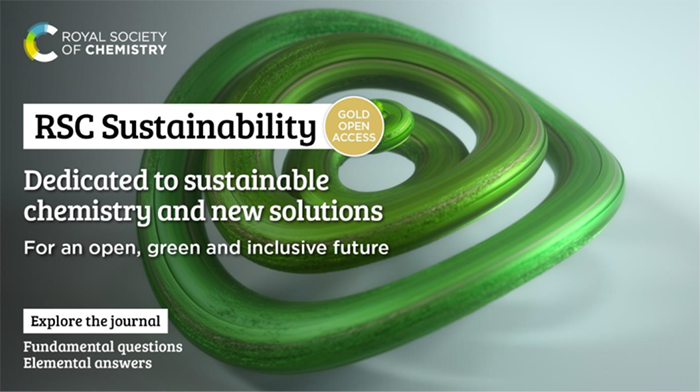
About RSC Sustainability
RSC Sustainability welcomes all solutions-focused research dedicated to solving sustainability challenges and champions chemical science discoveries that contribute to and enable any of the UN’s Sustainable Development Goals. As an inclusive journal, we celebrate multidisciplinary collaboration as well as traditional chemical science contributions. Find out more at https://www.rsc.org/journals-books-databases/about-journals/rsc-sustainability/#scope.
Led by Editor-in-Chief Professor Tom Welton (Imperial College London), all submissions are handled by our experienced and internationally recognised Associate Editors. Further information about the journal scope, editorial team and how to submit, can be found on our webpage: rsc.li/RSCSus.
RSC Sustainability is a gold open access journal. This means that the exceptional research you publish here can be easily accessed by people around the world. We are also paying for all article processing charges (APCs) until mid-2025, so you can gain global recognition without costing you or your funding body.
About the Royal Society of Chemistry
Our mission at the Royal Society of Chemistry is to advance excellence in the chemical sciences (find out more here). As a society publisher, we re-invest all surplus back into the global scientific community, providing support for authors, researchers and educators. If you would like to find out more about the advantages of publishing in a Royal Society of Chemistry journal, please visit our website.
Royal Society of Chemistry www.rsc.org
SACNASP
Dear SACI Members
SACI would like to introduce to you SACNASP (South African Council for Natural Scientific Professions), which was established in terms of section 2 of the Natural Scientific Professions Act (NSP), No. 27 of 2003, as amended, https://www.gov.za/documents/natural-scientific-professions-act-0. SACNASP is a statuary body, with the primary role of registering and regulating natural scientific professionals in terms of the NSP Act.
Last year SAQA had to withdraw the Professional Chemist (Pr.Chem.SA) designation (issued via SACI), due to legal issues with SACNASP. Hence, SACI encourage our members to register as professional scientists in the Chemical Sciences, with SACNASP. There are 3 membership categories, namely:
(a) professional natural scientist – this membership category is the replacement for the former SAQA SA Professional Chemist;
(b) candidate natural scientist; and
(c) certificated natural scientist
Details of the requirements for registration can be found on the SACNASP web page: https://www.sacnasp.org.za/requirements-for-registration.
SACI has a Memorandum Agreement with SACNASP for mentoring of Chemists in a Career Development Program (CDP), i.e. a mentoring program is now available for SACI members requiring only one more year of relevant work experience, in accordance with the Professional Natural Scientist registration guidelines (number of work experience years is dependent on qualification). Currently, SACI has two SACNASP sponsored positions available for Mentees.
If you would like to be part of this mentorship program, and you are a SACI member, please contact me at mrssuzefinney@gmail.com, for further details.
Please note that the CDP is an intensive program, which requires that you submit a portfolio of evidence for all requirements which must be met to be a registered Professional Natural Scientist. To maintain this registration, continual learning and development are required by SACNASP – please ensure that you are fully aware of the commitment required before applying.
Kind regards,
Suzanne Finney
SACI Executive Treasurer & Chairman Industrial Division
NSTF News
For the latest news see: http://www.nstf.org.za/news-category/nstf-news/
AYCN
NEW!! African Younger Chemists' Network (AYCN)
It is an exciting time to be an early-career chemist on the African continent - we are establishing the African Younger Chemists' Network (AYCN)! The need for a unifying "Afro-centric" early-career chemistry network is essential to showcase the unique talents and ideas from this region. AYCN’s vision is to promote and establish global standards for the empowerment of early-career chemists and to prepare them for a sustainable future with constructive engagements and collaborations with stakeholders from across the globe. It is the intention to establish the AYCN in collaboration with other major African and global chemistry societies.
The criteria:
This group will comprise African Early-Career Chemists (AECC) who are either under the age of 35 or who are within 5 years of their terminal degree.
The purpose of this group is to:
1) encourage networking and create a community among AECCs,
2) create a space for collaboration between emerging researchers,
3) to share opportunities, including funding calls, conferences, job listings and writing workshops,
4) to promote leadership and development of AECCs.
This form serves as an expression of interest. Please complete this form if you meet the criteria listed above, and are keen to join this group. You will then be invited to join us during this establishment phase of the AYCN where the group's activities will be discussed. To receive an invitation for this meeting, we need a completed form with your email address.
Attached please find the Google form link introducing the AYCN (African Younger Chemists' Network) and requesting for volunteers to populate the various subcommittees.
https://forms.gle/hVAM8UeEY57hjusPA
Form will be open until the end of the year.
Contact email: aycn.chemists@gmail.com
Contact people: Ms Bianca Davids, Dr Sadhna Mathura
IUPAC
For the latest IUPAC news see: http://www.saci.co.za/iupac.html
For a list of IUPAC sponsored events see: https://iupac.org/events/
IUPAC Concentrate | sample 2022-11-22
NEWS
IUPAC welcomes its new Executive Director, Dr. Greta Heydenrych
Following the announcement, on 16 March 2022, of the imminent retirement of IUPAC’s long-serving Executive Director, Dr. Lynn M. Soby, IUPAC is pleased to announce that Dr. Greta Heydenrych will be the new Executive Director of IUPAC, initially as a volunteer.
Of her appointment, Greta says: “I am very honoured to be selected to serve as the Executive Director of IUPAC. Today is an exciting time for chemistry, with rapid developments everywhere in the field. IUPAC’s role in ensuring that chemists continue to speak the same language will only become more important in the next years, as the amounts and types of data being generated continue to increase and science becomes more open – as it should! I look forward to working with IUPAC’s tireless volunteers to create and maintain the common language of chemistry and to keep chemists worldwide connected in one community.”
Elections Time for TMs, AMs, and NRs
Every two years, IUPAC holds an election for its officers and committee members. About 120 individuals are to be elected or re-elected either as Titular Members, Associate Members, or National Representatives. Information concerning the voting process and the role of each kind of member is contained in the Union bylaws (see https://iupac.org/who-we-are/organizational-guidelines/). Any qualified individual who is interested in being nominated is invited to contact his/her National Adhering Organization (NAO) and/or the current committee officers. The election will cover a two-year term that will start in 2024. Every division committees and standing committees will have vacancies. As part of the nomination procedure, NAOs are invited to submit curriculum vitae for each nominee.
See form - deadline 1 February 2023
2023 IUPAC Awards in Analytical Chemistry – Call for nominations
The Analytical Chemistry Division of IUPAC has established two awards, including:
– The Emerging Innovator Award in Analytical Chemistry – an award to recognize outstanding work undertaken by an emerging analytical scientist that corresponds to the aims of the Analytical Chemistry Division.
– The IUPAC Analytical Chemistry Medal – an award to recognize significant lifetime contribution to the aims of the Analytical Chemistry Division.
Nominate now - deadline 31 Jan 2023
2023 IUPAC-Solvay International Award for Young Chemists – Call for applicants
The IUPAC-SOLVAY International Award for Young Chemists is intended to encourage outstanding young research scientists at the beginning of their careers. The awards are given for the most outstanding Ph.D. theses in the general area of the chemical sciences, as described in a 1000-word essay.
Apply now - deadline 15 Feb 2023
RECENT PUBLICATIONS
PAC 94(9) - See content (https://iupac.org/etoc-alert-pure-and-applied-chemistry-september-2022/)
-- A brief guide to polymerization terminology (IUPAC Technical Report)
Christine K. Luscombe, Graeme Moad, Roger C. Hiorns, Richard G. Jones, Daniel J. Keddie, John B. Matson, Jan Merna, Tamaki Nakano, Gregory T. Russell and Paul D. Topham
https://doi.org/10.1515/pac-2021-0115
Also in a PDF form that is able to be readily disseminated and is publicly accessible by students and researchers (also available in Spanish)
{See IUPAC project 2015-013-1-400}
-- IUGS–IUPAC recommendations and status reports on the half-lives of 87Rb, 146Sm, 147Sm, 234U, 235U, and 238U (IUPAC Technical Report)
Igor M. Villa, Norman E. Holden, Antonio Possolo, Ryan Ben Ickert, David Brynn Hibbert, Paul R. Renne, Mauro L. Bonardi and Paul De Bièvre
https://doi.org/10.1515/pac-2021-1202
{See IUPAC project 2012-036-2-200}
-- Terminology for chain polymerization (IUPAC Recommendations 2021)
Christopher M. Fellows, Richard G. Jones, Daniel J. Keddie, Christine K. Luscombe, John B. Matson, Krzysztof Matyjaszewski, Jan Merna, Graeme Moad, Tamaki Nakano, Stanislaw Penczek, Gregory T. Russell and Paul D. Topham
https://doi.org/10.1515/pac-2020-1211
{See IUPAC project 2010-007-1-400}
Latest Chemistry International issue
There is something for everyone in this issue of CI: the 2022 IUPAC Top Ten Emerging Technologies in Chemistry are reported in full; echoes from our publisher De Gruyter on their experience on implementing data sharing policies; and some behind the scenes stories about the Global Women’s Breakfast.
The issue also includes a couple of detailed updates from current projects, including one on endocrine disruptors, and another one on an examination of IUPAC contributions to the UN Sustainable Development Goals. Finally, there are echoes from the International Year of Basic Sciences for Sustainable Development (IYBSSD) opening ceremony held in Paris in July, as well as inspiring feedback from attendees of the postgraduate summer school on green chemistry held in Venice.
Upcoming events:
- ACRICE 2022 – 5th African Conference on Research in Chemistry Education
- From Water to Chemicals: Vision and Opportunities of a Sustainable Hydrogen Society
- Metrology, Quality and Conformity Assessment
- POLY-CHAR 2023
- Breaking Barriers in Science (GWB2023)
- 15th IUPAC International Congress of Crop Protection Chemistry
- XV Postgraduate Summer School on Green Chemistry
- 38th International Conference on Solution Chemistry
- The 26th International Conference on Chemical Thermodynamics (ICCT-2023)
- IUPAC World Chemistry Congress 2023, The Hague, NL
BEAKERS & FLASKS
e-Waste and chemistry education - call for papers
One of the recommended outcomes from the Future Actions Committee of the IUPAC CHEMRAWN XXII conference ‘E-waste in Africa’ was to develop and share teaching materials related to e-waste. Secondary school and university chemical education is critical due to the central role that chemistry plays in sustainable development and developing new, clean technologies. Many students have cell/mobile phones and access to computers, but many may be unaware of end of life or more general life cycle considerations for such devices. Important questions regarding components in electronic devices (their origin and their fate) and ways to recycle precious metals whilst preventing environmental pollution can be addressed.
A Call for papers for a special issue of Chemistry Teacher International concerning the theme: “Effective teaching tools and methods to learn about e-waste” has been released. Submit title and abstract (250 words) by 9 January 2023.
Moving Ahead on Gender Equity - Webinar recording available
A Chemistry Perspective on Gender Equity was the focus of a recent SCGES webinar. The Standing Committee for Gender Equality in Science (SCGES) webinar series is a monthly event that was launched in 2022. All SCGES Webinars are easily accessible on the SCGES YouTube channel.
Shop the IUPAC Store
Learn how to shop on amazon while supporting IUPAC on amazon or SHOP exclusive products from the IUPAC store.
The representatives for South Africa on the International Younger Chemists Network for the period of 2021-2022 are:
Dr Mabuatsela V. Maphoru, a lecturer from Tshwane UoT, and
Ms Alida-Louise Henning, a senior scientist from Impala Platinum Ltd.
Website: IYCN
Twitter: @IntlYoungerChem
Facebook: @IYCN.global
LinkedIn: intlyoungerchemistsnetwork
Professional Development Skills:
The International Younger Chemists Network (IYCN; https://www.iycnglobal.com/), affiliated organization of the International Union of Pure and Applied Chemistry (IUPAC) is organizing a series of FREE live workshops devoted to support and empower early-career chemists with professional development skills to advance their careers.
Stephen O Aderinto: soaderinto1@sheffield.ac.uk
Report on Young Ambassadors for Chemistry programme held in Cape Town on 23 July 2023
Preamble
Young Ambassadors for Chemistry (YAC), one of the flagship programmes of the Committee on Chemistry Education (CCE), was held on Saturday, 23rd July 2022 at the Cape Town Science Centre (CTSC) after the conclusion of the ICCE-2022. The usual format of the YAC event, which typically stretches over three days involving a teachers’ workshop, training of students and finally hands-on experiments by young students at a public place could not be adapted for the Cape Town event. This was primarily because of the non-availability of the students and teachers since the South African schools re-opened on 19th July 2022. After extensive discussion with the task group members, the members of the ICCE-2022 local organizing committee and the Administration of the CTSC (which hosted the event), we decided to organize a special one-day event at the Cape Town Science Centre along with several activities of the Centre itself. The theme chosen for the Open Day, Celebrating Chemistry – Chemistry for sustainability, reflected the fact that this Open Day represented the start of IYBSSD activities in the region and was registered as such on the national record of International Year of Basic Sciences for Sustainable Development (IYBSSD) activities.
Accordingly, a proposal was submitted to the IUPAC, and a request to Merck Global, for support of the event since CTSC planned to have free entry to all the visitors on the event day. We were delighted to receive support from both organizations and thus the event was finally planned by the Task group members.
Publicity and preparation for the event
The Science Centre announced the event a week before. This was also disseminated through social media by them and by some of the YAC team members.
For the one-day event with visitors of variable age groups, a variety of chemistry experiments were planned by the YAC team through multiple online discussion among the task group members. The experiments finally selected were dye sensitized solar cell fabrication, magic writing, heavy water, scattering and fluorescence, thermochromism and chemiluminescence. Additionally, a workshop for students (10+) on the fabrication of an aluminium-air battery was also planned to demonstrate alternative energy sources. Five volunteers from local universities were recruited to assist the YAC team. Several Zoom meetings were held with them to make them familiar with their role on the open day. Even though all the items for the dye sensitized solar cell were brought to Cape Town, it was decided after a trial run that because of the time involved and the expected lower age-group of the visitors on the open day, it will not be feasible to demonstrate this experiment.
The YAC Open Day at Cape Town
The YAC event was held at the Cape Town Science Centre on 23rd July 2022 between 10 am and 4 pm. The YAC team had six time slots with a total of three and a half hours for various activities. This included a special Welcome Address by Prof. Javier Garcia-Martinez, President, IUPAC. There were three half-hour slots for “Curious Chemistry Demonstrations” for visitors of all ages in the Science Corner of the Centre. Finally, two hands-on workshops on “Aluminium-air battery” for 20 visitors (aged 10+) were held. The Science Centre carried out its own Chemistry and other activities independently. We compiled a colorful brochure for the event which provided more information on IUPAC, the CCE, the history of YAC events and the IYBSSD. The brochures were distributed to visitors during the day.
The CCE YAC team (Prof. Marietjie Potgieter, Prof. Rachel Mamlok-Naaman, Prof. Hooi Ling Lee, Prof. Uday Maitra) was assisted by five volunteers from the Universities at and near Cape Town. They were Dr. Megan Matthews, Ms. Ruvimbo Chegwedera, Ms. Kadidiatou Ndjoubi Ossamy, Mr. Calleb Duya and Mr. Samson Oselusi. Two days before the actual event, the YAC team organized a workshop at CTSC with the volunteers to familiarize them with the proposed activities on the Open day.
The YAC event was kicked off with the theme “Curious Chemistry Demonstrations” at the Science Corner with a series of experiments such as “Magic writing”, “sinking of heavy water ice in water”, “scattering and fluorescence using easily available materials”, “thermochromism of Ag2HgI4 and Cu2HgI4” (which change color from yellow to orange at 51 °C and red to black at 70 °C, respectively).
Many young visitors (6-10 age group) were excited by the magic writing experiments and participated in ‘spray-painting’ of the magic banners (see photos below and video here). During the show, many of them also drew images with ‘magic ink’ and tested the appearance of the drawings after the spray. The volunteers explained the scientific reason behind each experiment, as appropriate to the age-group of the visitors. This event was concluded with a chemiluminescence experiment by the YAC team in the adjacent auditorium, which set the stage for the next major event, the Welcome Address by the IUPAC President.
 |
 |
 |
Prof. Marietjie Potgieter, Chair of CCE, introduced the IUPAC President, Prof. Javier Garcia-Martinez to the audience. In his informal address to a gathering of over 100 young children, students and parents, the President touched upon a variety of issues that the world is facing. He spoke on energy issues, CO2 related global warming, sustainability, etc., and how Chemistry can play a significant role in meeting several of these challenges (a short video clip here). After his inspiring speech, there was a brief but active Q&A session. After this event, Prof. Garcia-Martinez spent over an hour with the visitors and watched the science show organized by the Centre.
 |
 |
 |
A pre-lunch hands-on workshop on aluminium-air battery was fully booked with 20 participants in the 10+ age group. They were briefly informed about chemistry and sustainability and were shown the steps to prepare a simple Al-air battery using household items (kitchen Al-foil, steel wool scrubber, table salt, water, tissue paper). Although the output of the battery varied from group to group, one group obtained a relatively high output of 0.47 volt (see photo). Since this crude cell does not produce adequate voltage for lighting up a small lamp, a different battery using “Binchotan” charcoal (sourced from a Japanese restaurant in Cape Town!) was demonstrated by the volunteers which produced an output of 1.1 volts, adequate to produce a glow in a mini tungsten filament lamp. All the registered workshop participants received a gift of a ‘CTSC Science Snack in a Bucket’ (with 3 activities – slime, instant snow, and growing crystals).
 |
 |
 |
 |
During the lunch break the second session of YAC experiments was carried out. As before, this was attended by visitors of various age groups, with many young children accompanied by their parents. The YAC team and the volunteers interacted with them and explained the experiments.
 |
 |
 |
The second workshop, later in the afternoon, was also ‘house-full’ with 20 registered participants! This workshop was managed exclusively by the volunteers’ group and was as successful as the first one. All the participants of the second workshop also received the Science Snack gift buckets.
 |
 |
 |
The final event of the day was the third “Curious Chemistry Demonstrations” in the Science Corner and a Chemiluminescence experiment in the nearby ‘Light room’.
 |
 |
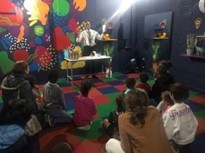 |
Like all the earlier events, the last event was also attended by many young visitors and their parents. The YAC team and the volunteers were delighted to see the response throughout the day – and till the end.
Based on the preliminary feedback received from the Cape Town Science Centre, there were over 700 visitors to the Centre on the Open Day, the majority of whom were from disadvantaged communities. Children and their parents were equally excited to experience the demonstrations and participated in several rounds of question-and-answer sessions. The YAC team felt that despite compressing the activities to a one-day event, most of the objectives of the YAC event were achieved. We were able to train a group of young volunteers who are now excited to participate in future outreach activities in their respective working areas. We believe that this group will be the facilitators to communicate chemistry to the public and young students, in keeping with the train the trainers’ model of the YAC. The free entry to the Science Centre, thanks to the generous support from the IUPAC and Merck, enabled children and parents from all strata of the local population to experience the YAC activities and the activities of the Science Centre. The presence and active participation of IUPAC President Prof. Javier Garcia-Martinez in the YAC activities were greatly appreciated by all the visitors. We were assured that many of the new experiments introduced by the YAC team will become part of the Science Centre’s basket of Chemistry experiments and will add value to their ongoing programmes.
This report has been prepared by Uday Maitra (India), Rachel Mamlok-Naaman (Israel), Hooi-Ling Lee (Malaysia) and Marietjie Potgieter (South Africa) who were at the Cape Town Science Centre on 23rd July, 2022, with inputs from Mei-Hung Chiu (Taiwan), Jan Apotheker (the Netherlands), Fun Man Fung (Singapore) and Izumi Imai (Japan).
19th August 2022
FASC News
Link to FASC Newsletters: https://faschem.org/node/7
Global Young Academy of Science
Over the last few months, the Global Young Academy of Science (GYA) members, alumni and Office staff have worked together with writers and editors from the BBC StoryWorks and the International Science Council (ISC) on an article featuring the work of the GYA At-Risk Scholars Initiative.
Today GYA is delighted to share news that the newly-launched multimedia hub #UnlockingScience is now live. You can visit the hub and check out our article “The scientific knowledge being lost to conflict” here: council.science/UnlockingScience
In addition to the At-Risk Science Initiative article, the hub features short films, audio-visual stories and a podcast exploring what science is doing to address the challenges of global sustainability.
CAIA Newsletter
The latest issue of CAIA news is available. Go to: http://www.caia.co.za/news/chemnews/
or e-mail: caia@iafrica.com for pdf files of news and information.
Clean Water for All
Introducing a new water testing kit:
Our Chemistry Solutions Company 21 in 1 Water Test Strip & 2 E.coli Tests Kit is available on our website as well as on Takealot. The kit consists of 200 test strips provides a comprehensive panel of parameters for testing water as follows:
11 in strips (100 strips):
– Nitrate (0-500 mg/L)
– Nitrite (0-80 mg/L)
– Bromine (0 – 20 mg/L)
– Total Chlorine (0-10 mg/L)
– Residual Chlorine (1-20 mg/L)
– Fluoride (0 – 200 mg/L))
– Potassium (0-50 mg/L)
– Sulfate (0-1600 mg/L)
– Hardness (0 – 1000 mg/L)
– pH (6.2-8.4)
– Total Alkalinity (0-240 mg/L)
10 in 1 strips (100 strips):
– Carbonate Root (0-180 mg/L)
– Zinc (0-100 mg/L)
– Aluminium (0-250 mg/L)
– Chromium /Cr ( 0 – 100 mg/L)
– Copper (0-300 mg/L)
– Cyanuric acid (0-300 mg/L)
– Iron (0-500 mg/L)
– Lead (0 – 500 mg/L)
– Manganese (0-5 mg/L)
– Mercury (0-0.08 mg/L)
Lesley Mukwada (M.Sc & Cand.Sci.Nat)
The Chemistry Solutions Company (PTY) LTD
11 Highstead Road, Cape Town,
South Africa
+27742720227
Web: https://thechemistrysolutionscompany.com/
Polytop Vial Storage Trays for Sale
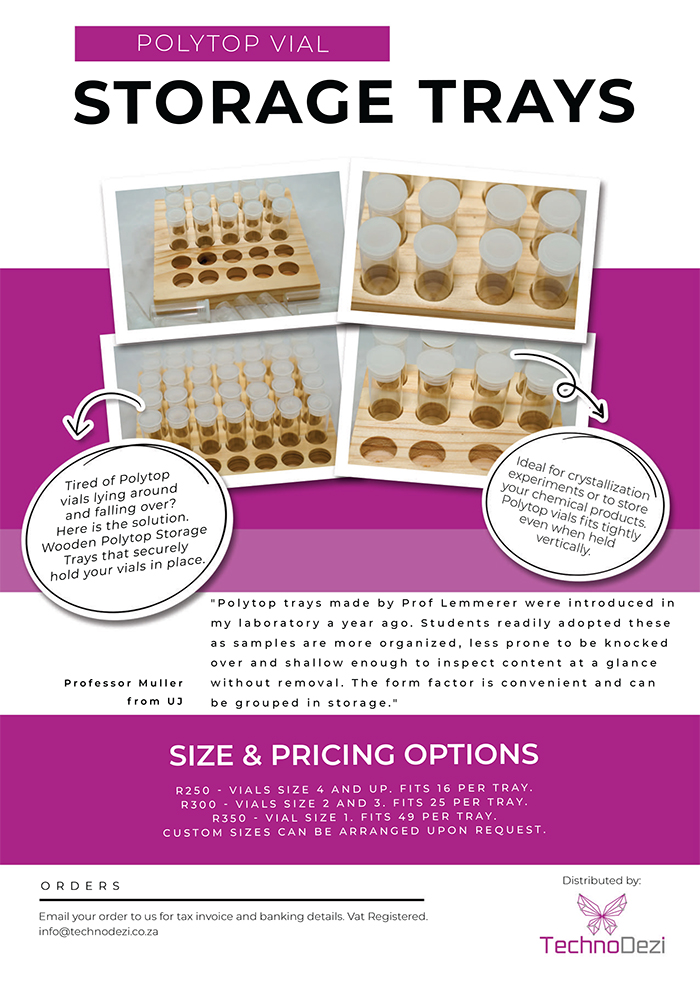
South African Journal of Chemistry
The South Journal of Chemistry is now 103 years old and we are pleased to note that the impact factor of the Journal is now 1.2 (and has a CiteScore of 2.2).
We encourage all SACI members to submit manuscripts to the Journal. Journal submission details can be found at http://saci.co.za/journal.
Details of the journal and the editors can be seen at http://www.journals.co.za/sajchem/.
All manuscripts since 1918 are electronically available online at
http://journals.co.za/content/journal/chem/browse?page=previous-issues
This Journal is published electronically. The webpage is: http://www.saci.co.za/. The South African Journal of Chemistry, published by the South African Chemical Institute, has been publishing high quality papers, in all fields of Chemistry for over 100 years. The Journal went fully electronic in 2000 and is freely available through open access online (http://reference.sabinet.co.za/sa_epublication/chem). It is a CAS-abstracted publication and is listed in Current Web Contents. It is also part of the Scielo group. It has retained its status as an accredited publication with the South African Department of Higher Education and Training.
We encourage South African chemists to publish in the journal!
African Journals of Chemistry
African Corrosion Journal (online). Commenced in 2015 ظ╤ق╛─éظ╥éعéق╛آéô a peer reviewed corrosion journal. This journal may be of interest to the “practical” chemists amongst the SACI membership. https://view.publitas.com/icp-1/african-corrosion-journal
African Journal of Chemical Education
Enquiries and manuscripts should be addressed to the Editor-in-Chief: email eic@faschem.org, PO Box 2305, Addis Ababa, Ethiopia. AJCE, 2016, 6(1) ISSN 2227-5835 The online version appears in the FASC website (www.faschem.org) and in the AJOL website (www.ajol.info)
Papers on any aspect of Chemistry Education such as teaching organic, analytical, physical, inorganic, polymer, green, climate change/environmental chemistry, ICT in chemistry and chemistry curricula as well as assessment in chemistry are acceptable for publication. We also encourage issues on chemistry and indigenous knowledge/practice, chemical safety, natural products and related areas.
Nanonews in South Africa
SAASTA newsletter. nanonews@npep.co.za. Prof Janice Limon, NPEP Nano News Editor
South African Journal of Science
TOC@assaf.org.za
Journal of the Chemical Society of Nigeria
csnjournals@gmail.com; csnjournals@yahoo.com; editor@chemsocnigeria.org
Bulletin of the Chemical Society of Ethiopia
http://www.ajol.info/index.php/bcse/index
South African Journal of Chemical Engineering
A fully open access journal , all authors can publish their papers on an open access basis in the South African Journal of Chemical Engineering at the reduced rate of $400 (USD).
http://www.journals.elsevier.com/south-african-journal-of-chemical-engineering/
Journal of the Kenya Chemical Society (JKCS)
This is a peer-reviewed multi-disciplinary chemistry journal published by the Kenya Chemical Society (KCS). JKCS publishes findings from all areas of chemistry including organic, inorganic, physical, analytical, materials chemistry and nanoscience, computational chemistry and environmental chemistry. JKCS also publishes reviews in all areas of chemistry. Published articles are available at
https://kenyachemicalsociety.org/journals.
Manuscripts should be submitted to the Editor-in-Chief at eic.jkcs@gmail.com for processing and peer-review.
Chemistry Africa
A Journal of the Tunisian Chemical Society
https://www.springer.com/chemistry/journal/42250?utm_source=hybris&utm_medium=e mail&utm_content=internal&utm_campaign=JFTT_2_aww_2018newjournals
Journal of the Mauritanian Chemical Society (JMCS)
Publishes research articles and conference proceedings in English or French.
This is published online at: http://www.scmauritania.org/journal-scm;
M A Sanhoury, JMCS Coordination Editor
Chemistry Africa
A Journal of the Tunisian Chemical Society
https://www.springer.com/chemistry/journal/42250?utm_source=hybris&utm_medium=e mail&utm_content=internal&utm_campaign=JFTT_2_aww_2018newjournals
Journal of the Mauritanian Chemical Society (JMCS)
Publishes research articles and conference proceedings in English or French. This is published online at: http://www.scmauritania.org/journal-scm; M A Sanhoury, JMCS Coordination Editor
Scientific African
Published by the Next Einstein Forum in collaboration with Elsevier.
https://www.journals.elsevier.com/scientific-african
SACI and SACI related Conference events
-
44th National Convention of the South African Chemical Institute
We are excited to announce that the 44th SACI National Convention will be held in Stellenbosch, 9-13 January 2023. We look forward to your participation in this in-person event!

6th International Symposium on Electrochemistry

https://saci.co.za/Scripts/Submissions/
Other Conferences
https://www.saci.co.za/other_events.html
Vacancies
Please see: https://www.saci.co.za/vacansies.html
< contentntentcontentcontentcontentcontentcontentt








